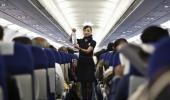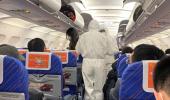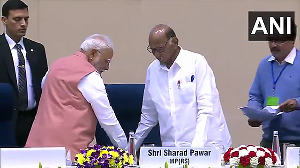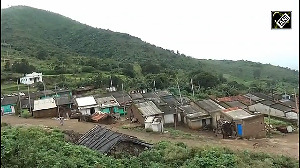As the world reverts to normal, will there be a new normal where countries including India become more and more protective of their own territories, markets, bilaterals, traffic and cargo?

At a recent aviation webinar, SpiceJet chief Ajay Singh ruffled the feathers of the UAE ambassador when he said that India could no longer rely on “middlemen” to ferry its passengers and goods across to various countries and that its own airlines were now in a position to do so.
The ambassador took great exception to the use of the term “middlemen” though the import of the message settled in.
In today’s environment when protectionism is rearing its head again - more so in the precarious aviation industry - Singh’s words should not be taken lightly.
Airline authorities around the world are seeking to protect their turf, and in what promises to be a bloody future, one cannot rule out battles over ferrying of passengers and goods.
This kind of finger-pointing has already surfaced in the case of certain American airlines and the United States.
In a letter to the Indian authorities, the Trump administration argued that India was running “scheduled operations” under the guise of “Vande Bharat”, and this amounted to unfair trade practices since their carriers were losing out.
After the US threatened retaliatory action, India quickly entered into a travel bubble arrangement and now carriers from both sides are flying back and forth.
Similar instances have occurred with other countries in West Asia and surrounding regions in June and July.
IndiGo, GoAir and Air India operate flights into Kuwait but in June, when the airlines sought clearances for charter flights, there were inordinate delays by the Kuwait authorities.
After the Indian side began to stop the incoming flights from the region (Jazeera and Kuwait Airways), Kuwait authorities relented.
Now both sides are operating in a spirit of “give and take”, says a senior ministry of civil aviation (MOCA) official.
A similar tussle between SpiceJet and Qatar - this time over cargo - was also resolved after the Indian side flexed its muscle.
“In some ways, the permit raj is back in full force during Covid-19,” the MOCA official says.
He adds that for Indian carriers, perversely, the longer the non-scheduled operations last, the better because it reduces competition since scheduled operations are suspended.
With a lower number of flights (750-800 a day versus the normal 3,300-3,400 a day) and lower loads (which vary between 52-55 per cent), only two million passengers were ferried by air in June instead of the usual 12 million.
Now the authorities and airline executives are worried about the softening of domestic air traffic in July.
Operations are ad hoc and subject to change at very short notice as states are going in for selective lockdowns as and when required.
Faced with this, airlines like IndiGo and SpiceJet are focusing increasingly on charter flights and cargo.
However, the broader questions on “who does how much” are now being raised time and again.
As things stand, the Indian airlines’ share in ferrying its own traffic in and out of the country has been very low, and carriers like Emirates and Singapore Airlines primarily rely on Indian traffic.
As the CEO of one of the domestic carriers says: “We have let Dubai become our national hub and Emirates our national carrier.”
The situation with cargo is worse.
In 2019-20, Indian carriers ferried around 7 per cent of the total cargo that was carried.
“Even with cargo, the bulk is carried by airlines from other countries,” an official points out.
Domestic airlines are arguing that if Indian authorities cannot help them with a revival package of any sort, the least they can do is strengthen their own carriers to carry a larger share of the Indian traffic and cargo carried out of the country by foreign carriers.
Both SpiceJet and IndiGo, and now even Vistara (which recently brought in some wide bodies), are looking at both these segments.
SpiceJet, which had submitted its application before the pandemic, has more recently been designated as a carrier for flights to UK, USA and Amsterdam and is planning to wet lease aircraft and take the plunge.
Government sources say that as far as they are concerned, the field is wide open.
They argue that Indian carriers never focused on either air cargo or the international market till the pandemic hit and desperate measures kicked in.
Several bilateral agreements remain unutilised from the Indian end because Indian carriers by and large either don’t have the wherewithal to take advantage of them or have not focused on this.
MOCA sources point out that the Indian carriers have been quite content with just the action on the domestic market, which is large in normal times.
A top government official says that they would be very happy if IndiGo went in for wide bodies (and have conveyed this to the carrier many times) and got into the international market whole hog, but they have seen “reluctance” from its side so far.
The official adds that most of the domestic carriers don’t have the aircraft for cargo operations and this business has never been their focus.
It is only now - in the post-Covid-19 era - that some of them are focusing on this segment.
Air services agreements govern the frequency with which countries allow airlines from other countries to operate in their jurisdictions.
Indian governments have been accused of being very generous with the grant of bilateral rights to some countries in the past, a matter of much controversy.
“Air services agreements are arrived upon in a larger context and therefore have to be viewed as such.
"So, amending existing agreements is not always possible or desirable,” points out a former external affairs ministry official.
But as the world reverts to normal, will there be a new normal where countries including India become more and more protective of their own territories, markets, bilaterals, traffic and cargo?
The prospect cannot be ruled out.
Photograph: Amit Dave/Reuters












 © 2025
© 2025